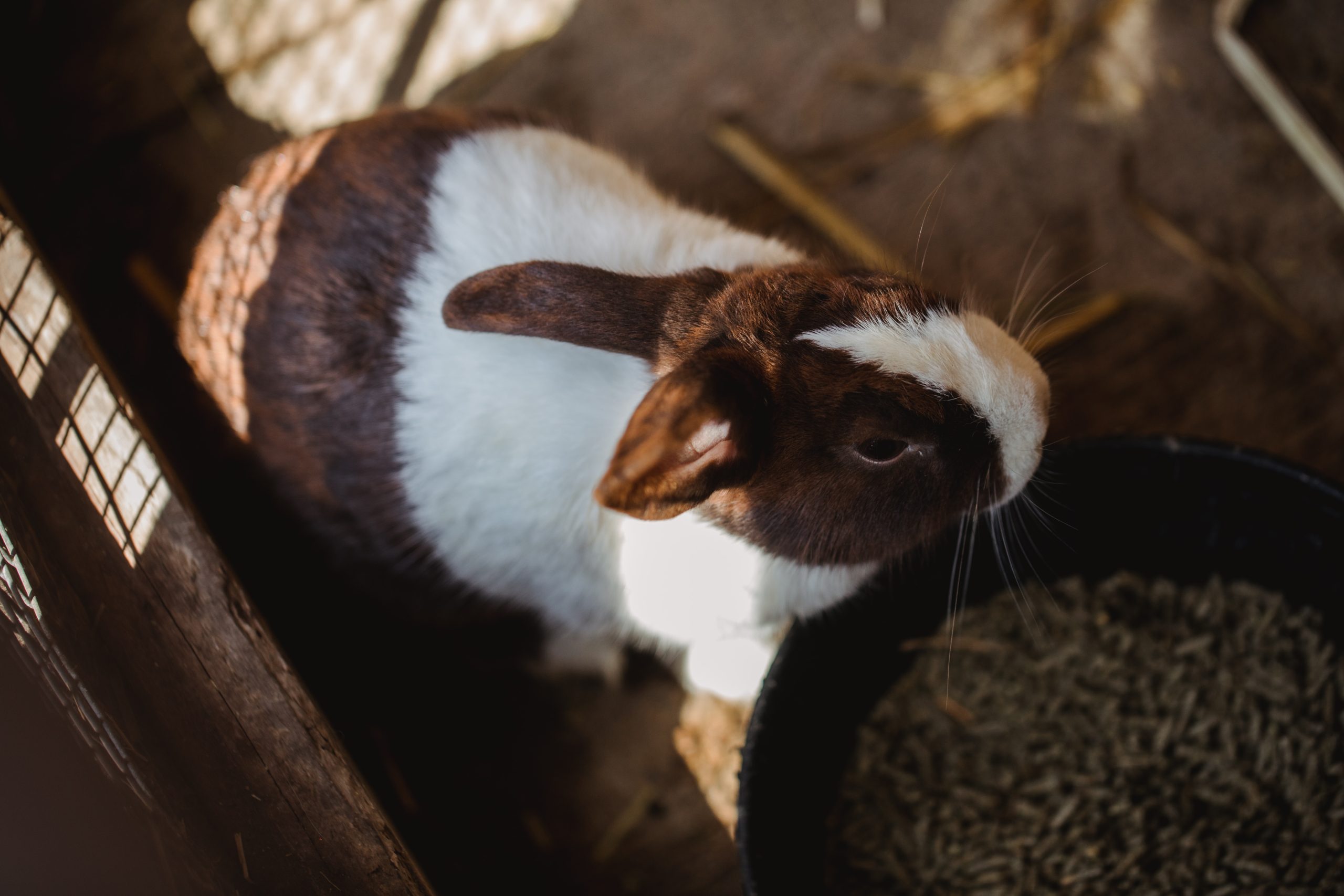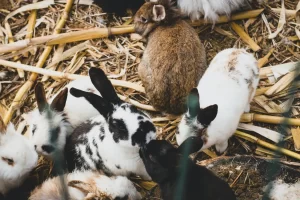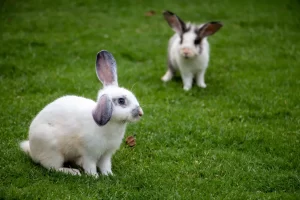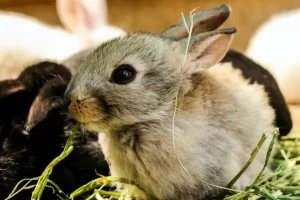Do you ever wonder how long you can leave your rabbit alone? Whether it’s for a quick errand or a longer absence, it’s important to consider their well-being.
In this article, we will delve into the factors that impact a rabbit’s independence and explore ideal timeframes for leaving them alone. We will also provide tips on ensuring their safety, managing their dietary needs, and providing enrichment during their alone time.
Let’s take a compassionate approach to caring for our furry friends.
In This Article
- 1 Key Takeaways
- 2 Factors That Impact a Rabbit’s Independence
- 3 Understanding a Rabbit’s Social Needs
- 4 Ideal Timeframes for Leaving a Rabbit Alone
- 5 Ensuring a Rabbit’s Safety and Comfort
- 6 Managing a Rabbit’s Dietary Requirements
- 7 Providing Enrichment for a Rabbit’s Alone Time
- 8 Seeking Alternatives to Leaving a Rabbit Alone
- 9 Frequently Asked Questions
- 9.1 Can Rabbits Be Left Alone Overnight?
- 9.2 How Long Can a Rabbit Be Left Alone Without Any Human Interaction?
- 9.3 Are There Any Risks Associated With Leaving a Rabbit Alone for Extended Periods?
- 9.4 Can a Rabbit Become Lonely or Depressed if Left Alone for Too Long?
- 9.5 Are There Any Specific Signs or Behaviors That Indicate a Rabbit Is Not Coping Well With Being Left Alone?
- 10 Conclusion
Key Takeaways
- Loneliness can have negative impacts on a rabbit’s well-being, leading to stress, depression, and behavioral issues.
- Social interaction with both humans and other rabbits is essential for a rabbit’s happiness and overall quality of life.
- If a bonded partner is not possible, supervised playdates with other rabbits or adopting a compatible animal can provide social interaction.
- Providing a stimulating environment with toys, puzzle feeders, and foraging activities can help meet a rabbit’s social needs during alone time.
Factors That Impact a Rabbit’s Independence
You should consider the factors that impact a rabbit’s independence when deciding how long to leave them alone.
Rabbits are social animals and thrive on companionship, so leaving them alone for extended periods can have negative effects on their emotional well-being. Loneliness can lead to stress, depression, and even behavioral issues.
Rabbits require mental stimulation and interaction to stay happy and healthy. Neglecting their social needs can result in a lack of trust towards humans and a decrease in their overall quality of life.
Additionally, if a rabbit is left alone for too long, they may become bored and resort to destructive behaviors such as chewing on furniture or digging up carpets.
It’s crucial to consider these potential consequences of neglect when deciding how long to leave a rabbit alone.
Understanding a Rabbit’s Social Needs
Understanding a Rabbit’s Social Needs involves recognizing the importance of companionship and providing them with opportunities for social interaction. Rabbits are social animals that thrive when they’ve companionship. Here are four key points to consider when it comes to rabbit socialization and the importance of companionship:
- Rabbits are happiest when they’ve a bonded partner. Having another rabbit in their life can provide them with a sense of security and companionship.
- Social interaction with humans is also essential for their well-being. Spending quality time with your rabbit, such as gentle petting or engaging in interactive play, helps strengthen the bond between you and provides them with mental stimulation.
- It’s important to introduce rabbits to each other slowly and carefully to ensure a successful bond. This process can take time and patience, but the benefits of having bonded rabbits are worth it.
- If you can’t provide a rabbit with a companion, consider other forms of social interaction, such as supervised playdates with other rabbits or even adopting a small, compatible animal like a guinea pig.
Ideal Timeframes for Leaving a Rabbit Alone
If necessary, you can leave a rabbit alone for short periods of time, but it’s important to ensure they have everything they need for their well-being and comfort.
When considering leaving your rabbit alone, there are a few ideal timeframes to keep in mind. For adult rabbits, it’s generally recommended not to leave them alone for more than 24 hours. However, for baby rabbits, they shouldn’t be left alone for more than a few hours at a time.
When leaving a rabbit alone, there are several considerations to take into account. Ensure they have access to fresh water, a clean litter box, and a comfortable environment with enough space to move around. Additionally, provide them with enough food, hay, and toys to keep them engaged and mentally stimulated.
It’s crucial to prioritize your rabbit’s well-being and ensure they feel safe and secure even when you’re not around.
Ensuring a Rabbit’s Safety and Comfort
Making sure your rabbit has a secure and cozy environment is essential for their safety and comfort. As a responsible rabbit owner, it’s important to prioritize their well-being and create a safe space for them to thrive.
Here are some key steps to ensure your rabbit’s health and create a safe environment:
- Provide a spacious and properly ventilated cage or hutch for your rabbit to move around comfortably.
- Use rabbit-friendly bedding materials, such as hay or straw, to keep them warm and cozy.
- Regularly clean and sanitize their living area to prevent the buildup of harmful bacteria or parasites.
- Ensure that their enclosure is predator-proof and free from any potential hazards like toxic plants or wires.
Managing a Rabbit’s Dietary Requirements
Are you aware of the importance of properly balancing and meeting a rabbit’s dietary requirements to ensure their overall health and well-being?
Managing a rabbit’s dietary restrictions is crucial for their optimal health. Rabbits have sensitive digestive systems, and a balanced diet is essential to prevent health issues.
Hay should make up the majority of their diet, as it aids in digestion and prevents dental problems. Fresh vegetables and a small amount of pellets should also be included. However, it’s important to introduce new foods gradually to avoid digestive upset.
Keep in mind that some foods, such as chocolate or onions, are toxic to rabbits and should be strictly avoided.
Providing Enrichment for a Rabbit’s Alone Time
During your rabbit’s alone time, you can enhance their environment by providing toys and interactive activities to keep them mentally stimulated and entertained. Rabbits are intelligent and curious animals, and playtime is essential for their overall well-being.
Here are four ideas for enriching your rabbit’s alone time:
- Puzzle toys: These toys challenge your rabbit’s problem-solving skills and keep their mind engaged. Fill them with treats or hay to make it even more enticing.
- Chew toys: Rabbits have constantly growing teeth, and providing them with safe chew toys helps prevent dental issues. Choose toys made from rabbit-safe materials like untreated wood or natural fibers.
- Tunnel systems: Rabbits love to explore and hide, so providing them with tunnels and hideouts will keep them entertained for hours. You can use cardboard tubes, tunnels, or even create a maze using cardboard boxes.
- Foraging toys: Rabbits enjoy foraging for food, and toys that require them to work for their treats are a great way to stimulate their natural instincts. Consider using treat balls or puzzle feeders.
Seeking Alternatives to Leaving a Rabbit Alone
If you’re feeling guilty about leaving your rabbit alone, consider exploring alternatives such as rabbit-sitters or pet boarding facilities. Rabbits are social animals that thrive on companionship and stimulation, so it’s important to provide them with the attention they need, even when you can’t be there.
Rabbit-sitters can come to your home and spend quality time with your furry friend, ensuring they receive the interaction they crave. Pet boarding facilities are another great option, as they offer a safe and engaging environment for your rabbit to socialize with other animals and receive the care and attention they deserve.
Additionally, interactive toys can provide mental and physical stimulation for your rabbit while you’re away. Toys that encourage exploration, foraging, and chewing can help alleviate boredom and keep your rabbit entertained.
Frequently Asked Questions
Can Rabbits Be Left Alone Overnight?
You can leave a rabbit alone overnight, but it’s important to make sure they have everything they need. They should have access to food, water, and a safe enclosure. Consider getting a companion for them and ensure they are not left alone during the day or on weekends.
How Long Can a Rabbit Be Left Alone Without Any Human Interaction?
Rabbits can self-soothe and be left alone for several hours, but it’s important to prepare them properly. Make sure they have enough food, water, and a safe, comfortable environment. Also, provide toys and enrichment to keep them entertained.
Are There Any Risks Associated With Leaving a Rabbit Alone for Extended Periods?
Leaving a rabbit alone for extended periods can have risks. Prolonged isolation can lead to loneliness, stress, and behavioral issues. It’s important to provide companionship and mental stimulation to ensure your rabbit’s well-being.
Can a Rabbit Become Lonely or Depressed if Left Alone for Too Long?
Leaving a rabbit alone for too long can have negative effects on their well-being. Rabbits are social animals and need companionship for their mental and emotional health. Long-term isolation can lead to loneliness and depression.
Are There Any Specific Signs or Behaviors That Indicate a Rabbit Is Not Coping Well With Being Left Alone?
Are there any specific signs or behaviors indicating a rabbit’s struggle with loneliness? Signs of rabbit separation anxiety can include excessive chewing, aggression, or withdrawal. To help, provide stimulating toys, companionship if possible, and a safe, comforting environment.
Conclusion
In conclusion, understanding a rabbit’s social needs is crucial to determining how long they can be left alone. Factors such as their personality, age, and environment play a role in their independence.
To ensure their safety and comfort, it’s important to provide a secure environment and manage their dietary requirements. Additionally, enriching their alone time with toys and activities can help alleviate their boredom.
If leaving a rabbit alone for extended periods isn’t feasible, seeking alternatives such as pet sitters or bunny daycare can ensure their well-being and happiness.





